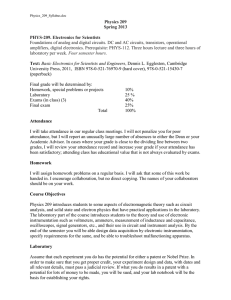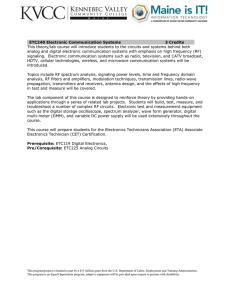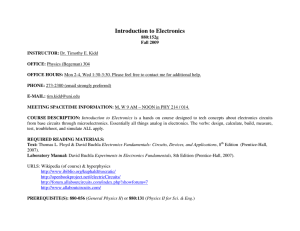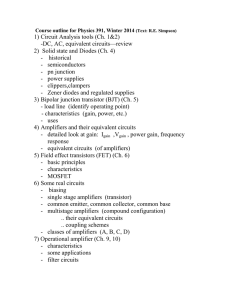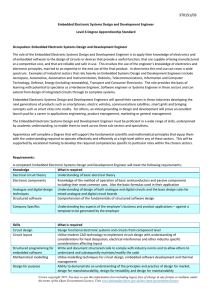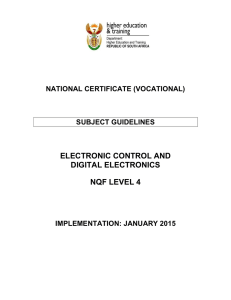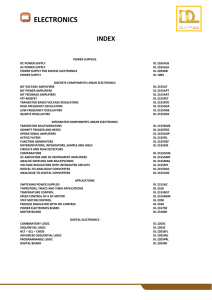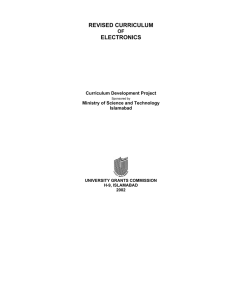ECE3710C/D: Circuits and Electronics - ECE Users Pages
advertisement
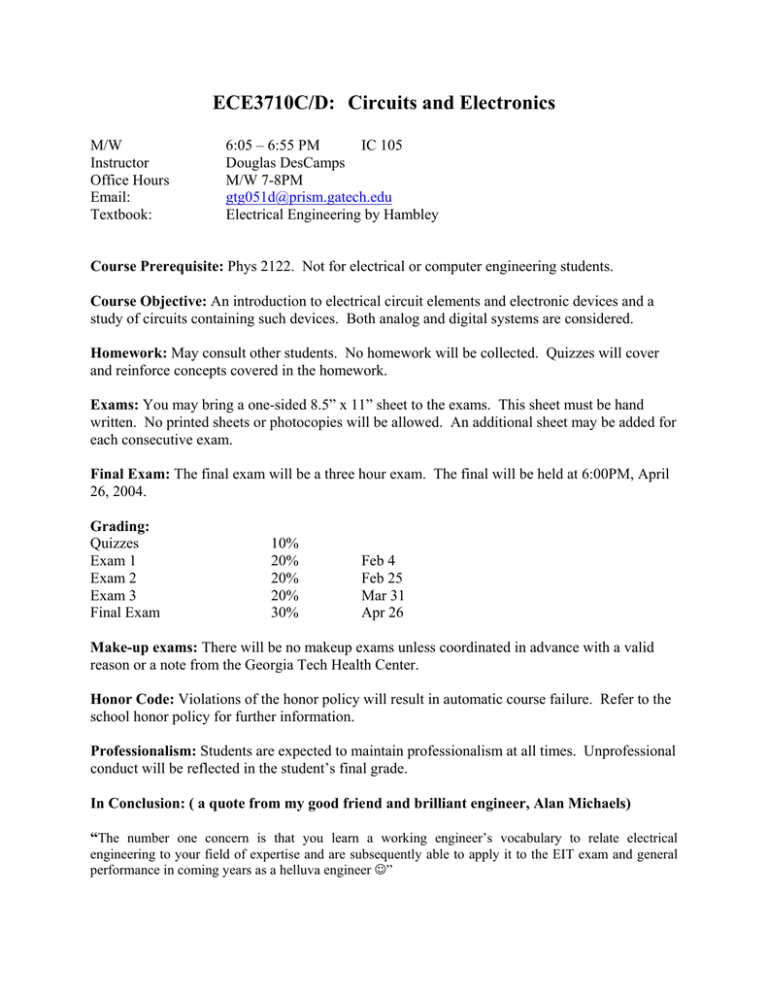
ECE3710C/D: Circuits and Electronics M/W Instructor Office Hours Email: Textbook: 6:05 – 6:55 PM IC 105 Douglas DesCamps M/W 7-8PM gtg051d@prism.gatech.edu Electrical Engineering by Hambley Course Prerequisite: Phys 2122. Not for electrical or computer engineering students. Course Objective: An introduction to electrical circuit elements and electronic devices and a study of circuits containing such devices. Both analog and digital systems are considered. Homework: May consult other students. No homework will be collected. Quizzes will cover and reinforce concepts covered in the homework. Exams: You may bring a one-sided 8.5” x 11” sheet to the exams. This sheet must be hand written. No printed sheets or photocopies will be allowed. An additional sheet may be added for each consecutive exam. Final Exam: The final exam will be a three hour exam. The final will be held at 6:00PM, April 26, 2004. Grading: Quizzes Exam 1 Exam 2 Exam 3 Final Exam 10% 20% 20% 20% 30% Feb 4 Feb 25 Mar 31 Apr 26 Make-up exams: There will be no makeup exams unless coordinated in advance with a valid reason or a note from the Georgia Tech Health Center. Honor Code: Violations of the honor policy will result in automatic course failure. Refer to the school honor policy for further information. Professionalism: Students are expected to maintain professionalism at all times. Unprofessional conduct will be reflected in the student’s final grade. In Conclusion: ( a quote from my good friend and brilliant engineer, Alan Michaels) “The number one concern is that you learn a working engineer’s vocabulary to relate electrical engineering to your field of expertise and are subsequently able to apply it to the EIT exam and general performance in coming years as a helluva engineer ☺” TOPIC OUTLINE DC Circuit Analysis Independent and Dependent Sources Kirchoff’s Laws Node Analysis Loop Analysis Thevenin’s and Norton’s Theorems AC Circuit Analysis Energy Storage in Capacitors and Inductors Sinusoidal Analysis and Impedence Resonance Power in AC Effective Values Real, Reactive, and Apparent Power Power Factor Three-Phase Power Introduction to Electronics Ideal Diodes p-n Junction Transistors BJT Switching and Amplifiers Junction Field-Effect Transistors JFET Switches and Amplifiers Digital Electronics Introduction to Digital Electronics Logic Circuits Boolean Representation and DeMorgan’s Theorems Sequential Systems Analog Electronics Operational Amplifiers Operational Amplifier Circuits Filters and Communication Systems Transformers
